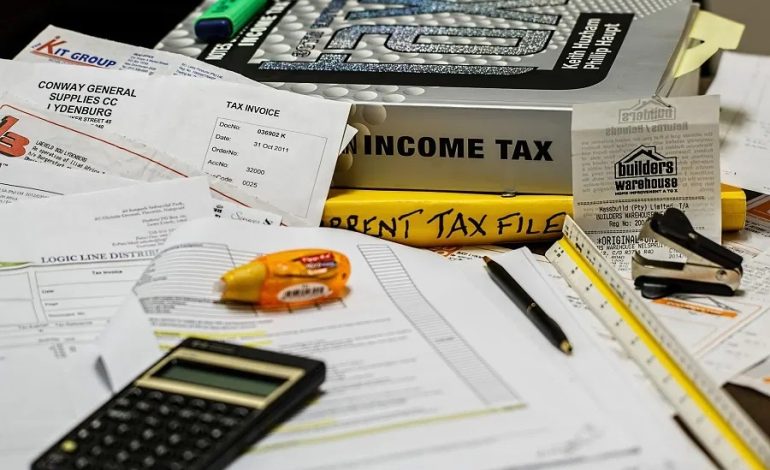A statutory charge on particular goods or services at the moment of purchase is known as an excise tax. Instead of being international taxes levied across national borders, they are intranational taxes levied within a government infrastructure. Typically, sales of motor gasoline, airline tickets, tobacco, and other products and services are subject to a federal excise tax.
Businesses are the main recipients of excise taxes. Many of them are paid for by businesses, who raise prices to pass the tax on to customers. Retail prices are raised overall because merchants pay excise taxes to wholesalers and take them into account when pricing products. As a result, most excise taxes may or may not be directly borne by consumers. However, some excise taxes, such as property taxes and levies on specific retirement account activity, are paid directly by consumers.
Federal, state, and local governments have the authority to institute excise taxes. While income tax is the primary revenue generator for federal and state governments, excise tax revenue also makes up a small portion of total revenue.
Excise taxes are primarily business taxes. They are separate from other taxes that corporations must pay, such as income taxes. Businesses charging and receiving excise taxes are required to file Form 720 Federal Excise Tax Return on a quarterly basis and include quarterly payments. Business collectors of excise taxes must also maintain their obligations for passing on excise taxes to state and local governments as required. Merchants may be allowed deductions or credits on their annual income tax returns related to excise tax payments.
Excise taxes can fall into one of two categories:
- Ad Valorem Taxes: Excise taxes that are fixed percentage rates assessed on particular goods or services
- Specific Taxes: Excise taxes of a fixed dollar amount applied to certain purchases
In some cases, governments levy excise taxes on goods that have a high social cost, such as cigarettes and alcohol. These types of excise taxes are sometimes called sin taxes because the good being taxed has a reputation for being “sinful” or with negative consequences associated with it.
Ad Valorem Excise Taxes
Ad valorem is a Latin phrase that literally means according to value. An ad valorem tax is charged on a percentage basis. This results in an excise tax that is based on the value of the product or service. For example, the Internal Revenue Service (IRS) levies a 10% excise tax on indoor tanning services. This means that if a tanning salon charges $100 for a tanning session, it must pay the IRS $10 in excise tax.
Other types of ad valorem excise taxes include firearms (10%), airline tickets (7.5%), and heavy trucks (12%). Property taxes can also be considered a type of ad valorem excise tax.
Specific Excise Taxes
Specific excise taxes are a set tax or fee added to a certain product on a per-unit basis. Some examples of federal, specific excise taxes as of Oct. 2023 include small cigarettes ($1.01 per pack of 20), pipe tobacco ($2.83 per pound), beer ($3.50 for the first 60,000 barrels), cruise ship passengers ($3 per passenger), and gasoline ($0.183 per gallon).
Read Also: What Are The Best Tax Saving Investments?
Sin taxes on targeted goods like beer and alcohol will often be taxed at the federal level and also taxed again by the state, making the cost of these items higher. For example, New York has a specific excise tax of $4.35 per cigarette pack of 20. Combining this with the federal tax of $1.01 makes the excise taxes alone $5.36. These taxes have a considerable impact on the consumer.
Excise Taxes on Retirement Accounts
Excise taxes are also charged on some retirement account activities. Many people are familiar with these taxes as penalties. A 6% excise tax is applied to excess individual retirement account (IRA) contributions that are not corrected by the applicable deadline. A 10% excise tax penalty applies to distributions from certain IRAs and other qualified plans when an investor makes withdrawals before age 59½.
Also, a 25% excise tax penalty is charged when investors do not take the mandatory required minimum distributions (RMDs) from certain retirement accounts, though this tax is reduced to 10% if the missed distribution is taken before the end of the “correction window.” The correction window starts on the date the penalty is imposed, usually January 1st after the year you missed the distribution. The window ends on the earliest of:
- The date the penalty is assessed by the IRS
- The date the IRS sends a notice of deficiency
- The last day of the second taxable year after the penalty is imposed
Excise taxes are assessed by federal and state governments on certain goods and services. They are paid by the merchants that sell them. Excise taxes can be a flat tax amount, known as a specific excise tax, or a percentage of the cost of the good, known as an ad valorem excise tax. They may also be limited only to goods sold within the state of the taxing authority.
Businesses often add the cost of an excise tax directly onto the price of the taxed good, so the tax is passed onto the customer. Customers may or may not know they are paying the cost of the excise tax on top of the price of the good or service. Some companies are transparent about excise taxes, though, like fuel companies. Next time you go to fill up your gas tank, take a look at the pump. The company may break down how much of the price at the pump goes toward the fuel itself versus how much you pay in taxes.
What is Tangible Tax
Tax terminology refers to personal property that can be physically moved and handled or touched, such as furniture, machinery, office supplies, and livestock. It is always subject to straight-line depreciation over a period of five or seven years, but it is also eligible for accelerated depreciation. It is also subject to taxes in a number of nations, including a sizable portion of the United States.
Tangible personal property is the opposite of real property, in a sense, as real property is immovable. It can also be touched—unlike intangible personal property.
Tangible personal property, or TPP as it is sometimes called, includes items such as furniture, machinery, cell phones, computers, and collectibles. Intangibles, on the other hand, consist of things that cannot be seen or touched like patents, copyrights, and non-compete agreements.
Most states impose property taxes on tangible personal property. These are collected on top of the taxes applied to real property like land and buildings to help fund various services such as schools, roads, and emergency medical services. Tangible personal property taxes are regulated at the state level but are levied primarily by local governments. They can vary considerably by jurisdiction.
Some states don’t charge a tangible personal property tax. And those that do may only apply it to certain items, such as personal property that is valued above a certain threshold or only used for business purposes.
How Tangible Personal Property Is Taxed
Tangible personal property can be subject to ad valorem taxes, meaning the amount of tax payable depends on each item’s fair market value. In most states, a business that owned tangible property on January 1 must file a tax return form with the property appraisal office no later than April 1 in the same year.
The property appraiser places a value on the property, and the tax amount due is calculated by multiplying the property value by the tax rate set by the tax authorities in the state.
Some counties and cities require the filer to list all property on the tax form and to provide the fair market value and cost for each tangible property. In these cases, the county will also provide a valuation table that can be used to estimate the value of the property based on its age and useful life. Some states only apply a tax on tangible property in the year the property was purchased.
Deductions
Tangible personal property tax is paid by a landlord or company to its local government, but landlords or company owners can claim a deduction on federal income tax returns. To claim the deduction, the tax must only apply to personal property owned and bought for the business’ operation, be based on its fair market value, and be charged on an annual basis (as opposed to a one-time basis).
Example
In Florida, anyone who has a proprietorship, partnership, or corporation; is a self-employed agent or contractor; or leases, lends, or rents property and owns tangible personal property on January 1, must complete Form DR-405 and submit it to their local property appraiser by April 1.
If the tangible personal property is valued above $25,000, the entity or person will start paying tax on it. The property appraisal office will usually mail a letter to the company notifying it to file taxes on its property. If the company or landlord believes the letter is not applicable, they can return the letter to the office along with another letter explaining why taxes on tangible personal property do not apply to the business.
Seven states exempt all tangible personal property from taxation. They are:
- Delaware
- Hawaii
- Illinois
- Iowa
- New York
- Pennsylvania
- South Dakota
Moreover, other states exempt most tangible personal property from taxation. They include:
- New Hampshire
- New Jersey
- North Dakota
- Ohio
Resistance against a tangible personal property tax appears to be growing. In 2023, according to MultiState, a state and local government relations company, 23 states sought to reduce or eliminate taxes on tangible personal property.
The tax has been described as complex, costly to administer, and guilty of pushing businesses to set up shop in other states with friendlier rates.
Tangible personal property consists of anything that can be felt or touched and physically relocated. That can include big items such as cars, refrigerators, livestock, and gasoline storage tanks and pumps at retail service stations, as well as little stuff such as a printer, cell phone, or jewelry.
Tangible personal property, or TPP as it is often called, is personal property that can be felt or touched and physically relocated. That covers a lot of stuff, including equipment, livestock, and jewelry.
In many states, these items are subject to ad valorem taxes. How tangible personal property is taxed can vary considerably, not just by state but also by city. Some places rely heavily on this tax, whereas others have completely banned it or offer various exemptions.


